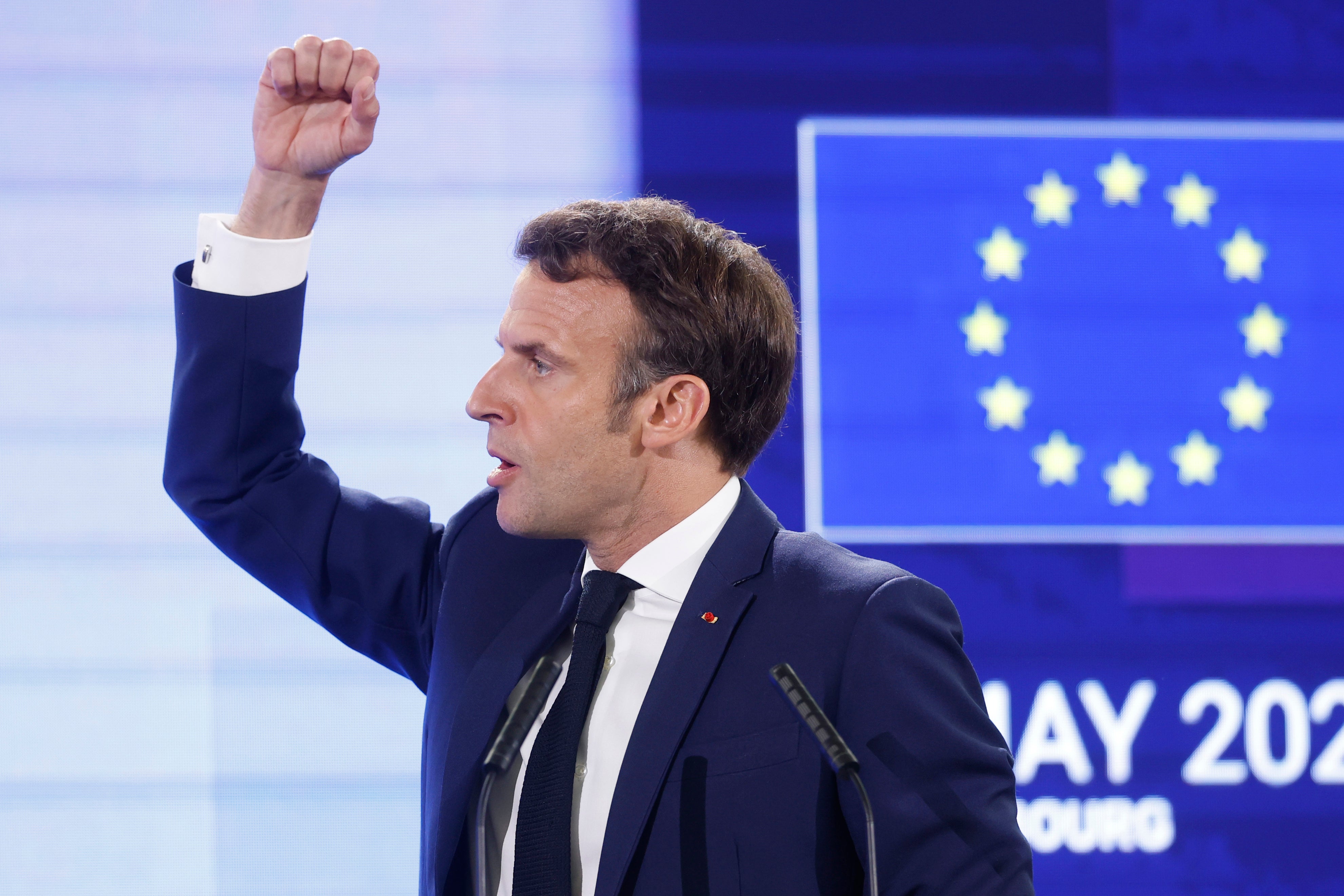Could Macron’s vision of a wider European project be the way forward?
Could a broader European political community be the answer to the continent’s challenges? Sean O’Grady looks at what it could mean


Every French president matters to the future of Europe, but Emmanuel Macron now matters more than most. After the departure of Bundeskanzler Merkel and Brexit, the cockpit of Europe is firmly located in Paris for the first time in a half a century.
And now, out of a blue starry sky, Macron has launched a new dimension to the European project – what might be called “Greater Europe”, a diverse outer group of politically associated states unable or unwilling to accede full membership.
Reaching into the EU’s past, Macron posits a new political grouping, a European political community. Into this loose grouping would fall states such as Ukraine who ardently wish to join the Union, but are, for obvious reasons, unable yet to do so. As Macron put it: “Ukraine by its fight and its courage is already a heartfelt member of our Europe, of our family, of our union. Even if we grant it candidate status tomorrow, we all know perfectly well that the process to allow it to join would take several years, indeed, probably several decades”.
The European political community would also contain those closer to readiness, say in the Balkans, those who are already in close trade association, such as Norway or Iceland, and, of course, those that have left, such as the UK. It could be that, in due course, other unsettled members of the European Union, such as Hungary, could be directed towards the outer circle, or take it upon themselves to march towards it.
Like many political strategies, it has a noble purpose, as well as some unspoken ones. It must seem very clear to President Macron that if the strategic answer to the challenges Europe faces is “more Europe” then that will mean a European Union with a more coherent and unified core to make it reality. This concept of an “inner core”, which shares the vision of European federalism might well be relatively tight, if confined to those nations within the eurozone and Schengen, thus excluding Poland, Sweden, Denmark and even Ireland.
None of this is set out, but it is strongly reminiscent of the model of European “concentric circles” discussed within the community for some decades. A system of "variable geometry" was, for example, talked about during the Maastricht treaty negotiations in the early 1990s, with countries gaining "opt-outs" from economic and monetary union and other issues. It was also notably advocated by former French president Giscard d’Estaing when he was charged with drafting a “European constitution” a quarter-century ago. Ironically, it was also raised as a possible post-Brexit framework for the UK by Eurosceptics.
The European political community is, though, a creative answer to some of the more pressing and difficult challenges facing the continent – security from the Russian threat and post-Covid economic recovery. It brings candidate nations into a formal forum for policy consultation; and offers an additional framework for defence, security and intelligence cooperation, though Nato remains the preeminent player. It would also almost force the British and French – intense rivals and close allies – to engage in some sort of dialogue. If all the european political community did was get Johnson and Macron to speak to one another about fishing, the Northern Ireland protocol, the Channel refugee crisis and Ukraine, it would be worth the cost of a small administration office, either in Brussels or some other less loaded European centre, such as Oslo, Tirana or perhaps one day even Kyiv.
Perhaps President Volodymyr Zelensky would be good enough to take forward President Macron’s plan with his friend Boris Johnson. Given the power of Europhobia in the Conservative party, the Macron initiative will take some care to make reality.



Join our commenting forum
Join thought-provoking conversations, follow other Independent readers and see their replies
Comments